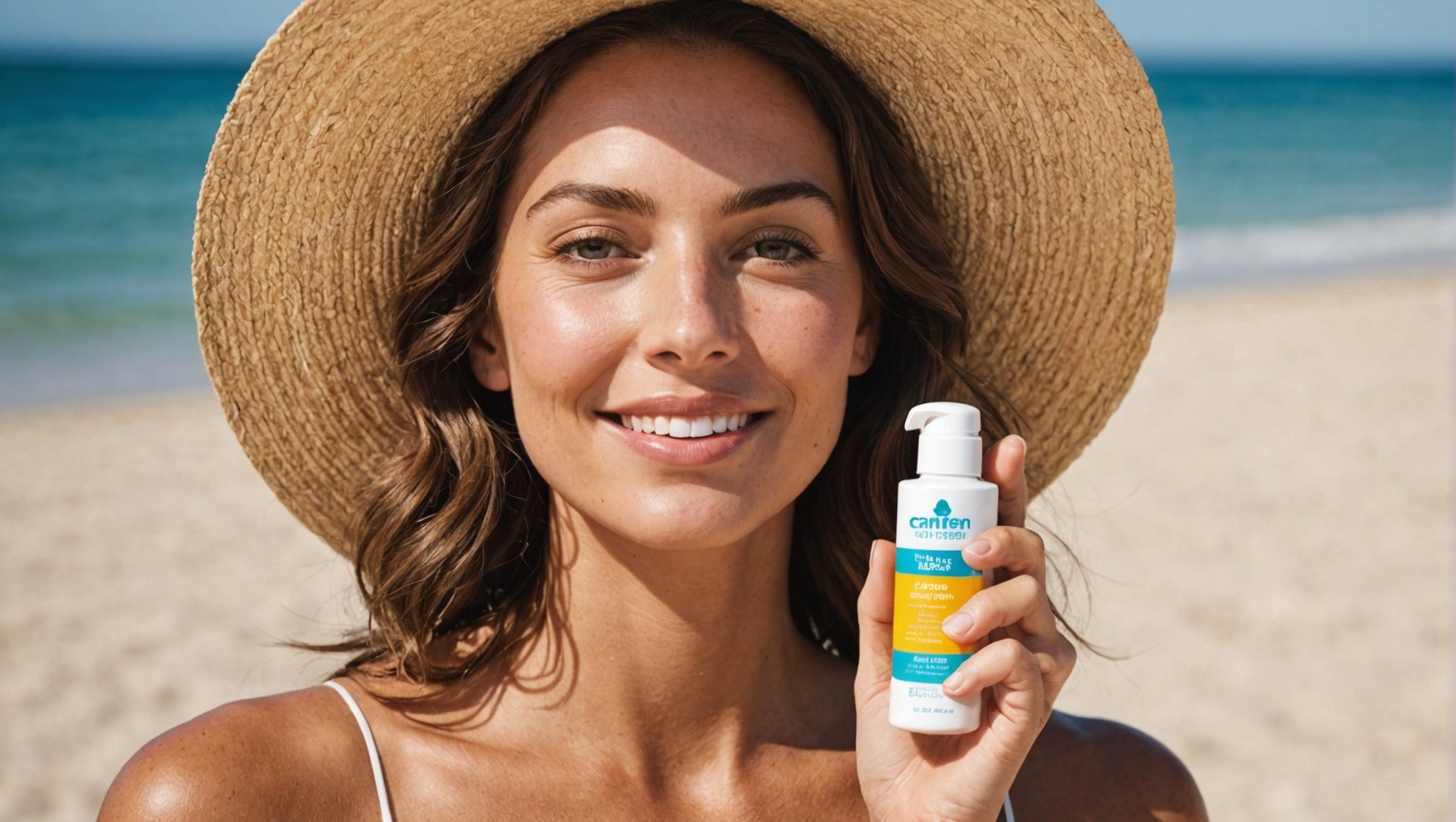Finding the right sunscreen for delicate skin can be overwhelming. Many products contain harsh chemicals that irritate sensitive types, making it essential to choose wisely. This guide simplifies your search for safe, effective sunscreens specifically designed for sensitive skin. Discover options that not only protect against UV rays but also nourish and soothe. With top recommendations backed by expert advice, you can feel confident in your sun safety choice. Say goodbye to irritation and hello to sun protection that truly cares for your skin!
Introduction to Sunscreens for Sensitive Skin
Understanding the needs of sensitive skin is crucial when selecting the right sunscreen. People with delicate skin often face challenges such as irritation, redness, or allergic reactions. These concerns make it essential to find a gentle sun protection solution.
This might interest you : Discover the amazing health benefits of lion's mane mushroom
Ingredient transparency is a key factor in choosing safe sunscreen options. Consumers need to know what's in their products to avoid potential irritants. Using sunscreens with minimal and natural ingredients can help reduce the risk of adverse reactions.
Common Concerns and Solutions
Sensitive skin types often worry about the presence of harsh chemicals, fragrances, and preservatives in sunscreens. These elements can exacerbate skin conditions, leading to discomfort or damage.
Also read : Unlocking the secrets of psychology: transform your life today
To address these concerns, look for sunscreens labeled as hypoallergenic or specifically designed for sensitive skin. Physical sunscreens containing zinc oxide or titanium dioxide are often recommended, as they tend to be less irritating.
Safe Sunscreen Options
- Mineral-based formulas: Offer a gentle sun protection without chemical filters.
- Fragrance-free products: Minimize the risk of irritation.
- Broad-spectrum protection: Shields against both UVA and UVB rays, crucial for maintaining skin health.
Choosing the right sunscreen can make a significant difference for those with sensitive skin, ensuring both safety and efficacy in sun protection.
Top Recommended Sunscreens for Sensitive Skin
Discovering the best sunscreens for sensitive skin can be transformative for those prone to irritation. Below is a curated list of top-rated sunscreen products designed specifically for sensitive skin, ensuring both protection and comfort.
List of Top-Rated Sunscreens
-
La Roche-Posay Anthelios Melt-in Milk SPF 100
-
Boasts a high SPF for ultimate protection
-
Unique selling point: Lightweight, non-greasy formula
-
Aveeno Positively Mineral Sensitive Skin Sunscreen SPF 50
-
Contains naturally sourced zinc oxide
-
Unique selling point: Gentle enough for daily use
- Neutrogena Sheer Zinc Oxide Dry-Touch Sunscreen SPF 50
- Offers broad-spectrum protection
- Unique selling point: Water-resistant for up to 80 minutes
Key Features of Each Product
Each of these top-rated sunscreen products is tailored to cater to sensitive skin needs. They are free from harsh chemicals, fragrances, and preservatives, reducing the risk of irritation. The inclusion of mineral-based formulas like zinc oxide ensures gentle yet effective sun protection.
Choosing the right sunscreen is crucial for maintaining healthy skin, especially for those with sensitivity concerns. Prioritize products that offer broad-spectrum protection and are specifically formulated to be hypoallergenic. This approach ensures that your skin remains safe and comfortable under the sun.
Ingredient Breakdown: What to Look For and Avoid
Understanding the components of sunscreen ingredients is essential for those with sensitive skin. Choosing the right safe sunscreen components can significantly reduce irritation and allergic reactions.
Beneficial Ingredients
For sensitive skin, zinc oxide and titanium dioxide are recommended. These mineral-based ingredients provide broad-spectrum protection while being gentle on the skin. They work by physically blocking harmful UV rays, making them excellent safe sunscreen components.
Common Irritants and Allergens
When selecting a sunscreen, it is crucial to avoid certain irritants. Fragrances, preservatives, and chemical filters like oxybenzone can cause adverse reactions. These elements are often responsible for irritation and allergies, making it vital to choose products free from these irritants in sunscreen.
Importance of Fragrance-Free and Hypoallergenic Products
Opting for fragrance-free and hypoallergenic sunscreens can help minimize the risk of skin irritation. Products labeled as such are less likely to contain common irritants in sunscreen formulations, making them safer for sensitive skin.
- Zinc Oxide: Physical blocker, gentle on skin
- Titanium Dioxide: Broad-spectrum protection
- Fragrance-Free: Reduces irritation risk
Selecting sunscreens with these safe sunscreen components ensures effective protection while maintaining skin health.
User Reviews and Expert Recommendations
Exploring insights from users and experts on sunscreen choices
User Experiences with Recommended Sunscreens
User reviews of sunscreens for sensitive skin provide valuable insights into product performance. Many users report positive experiences with products like La Roche-Posay and Aveeno, highlighting their gentle formulations and effective sun protection. A consistent theme in user reviews is the satisfaction with non-greasy textures and the absence of irritation, which is crucial for sensitive skin.
Expert Opinions on Effectiveness
Experts often recommend sunscreens with mineral-based ingredients, such as zinc oxide and titanium dioxide, for sensitive skin. These components are praised for their ability to provide broad-spectrum protection without causing irritation. Expert sunscreen recommendations frequently emphasize the importance of hypoallergenic and fragrance-free formulations to minimize adverse reactions.
Comparison of User Ratings and Satisfaction
User reviews and expert opinions align in their appreciation for certain sunscreens, but how do they compare in terms of satisfaction? Below is a comparison:
| Product | User Rating | Expert Recommendation |
|---|---|---|
| La Roche-Posay Anthelios | 4.5/5 | Highly recommended |
| Aveeno Positively Mineral | 4.3/5 | Recommended |
| Neutrogena Sheer Zinc Oxide | 4.2/5 | Recommended |
The table illustrates that trusted product reviews and expert opinions often coincide, reinforcing the reliability of these sunscreens for sensitive skin.
SPF Levels and Textures: Finding the Right Fit
Understanding the nuances of SPF levels and sunscreen textures is vital for those with sensitive skin. It's crucial to choose the right sunscreen SPF levels to ensure adequate protection without causing irritation.
Importance of SPF Levels
SPF levels indicate how well a sunscreen can protect against UVB rays. For sensitive skin, a higher SPF, such as SPF 50 or above, is often recommended to provide more comprehensive protection. However, higher SPF levels can sometimes mean thicker formulations, which may not suit everyone's preference.
Texture Varieties and Suitability
Different sunscreen textures can influence comfort and effectiveness. Lotions and creams are often favored for their moisturizing properties, making them suitable for dry, sensitive skin. Sprays offer convenience but may contain alcohol, which can irritate. Understanding your skin type can guide your choice of sunscreen textures.
- Lotions: Moisturizing, ideal for dry skin
- Creams: Rich texture, suitable for sensitive areas
- Sprays: Convenient, but check for alcohol content
Recommendations Based on Preference
Selecting the best sunscreen for sensitive skin involves balancing SPF levels and texture. Choose a product that aligns with your skin's needs and personal comfort. This approach ensures both effective protection and a pleasant experience.
Application Tips for Sensitive Skin
Maximize protection with proper application techniques.
Step-by-Step Guide to Effective Sunscreen Use
Applying sunscreen correctly is crucial for maximum protection. Start by using a generous amount, approximately a teaspoon for the face and an ounce for the body. Apply sunscreen 15 minutes before sun exposure to allow it to absorb fully. Reapply every two hours, or more often if swimming or sweating, to maintain effectiveness.
Layering Sunscreen with Skincare Products
Integrating sunscreen with your skincare routine can enhance protection. Begin with a clean face, followed by moisturizer. Allow it to absorb before applying sunscreen. If using makeup, give the sunscreen time to set before proceeding. This ensures that the sunscreen forms a protective barrier without interference.
Common Mistakes to Avoid
Avoid these pitfalls for effective sunscreen application:
- Skipping areas: Don't forget ears, neck, and hands.
- Using too little: Insufficient amounts reduce protection.
- Relying on makeup with SPF: It often doesn't provide enough coverage.
| Mistake | Impact |
|---|---|
| Skipping areas | Incomplete protection |
| Using too little | Reduced effectiveness |
| Relying on makeup | Insufficient SPF coverage |
By following these sunscreen application tips, you can ensure comprehensive and effective protection for sensitive skin.
Additional Considerations for Sensitive Skin
Understanding the nuances of sun protection for sensitive skin is essential.
Importance of Reapplication and Timing
For those with sensitive skin, the timing and frequency of sunscreen application are crucial. Reapplying every two hours, especially after swimming or sweating, helps maintain effective sun protection. This ensures that your skin remains shielded from harmful UV rays throughout the day.
Lifestyle Factors Affecting Sunscreen Effectiveness
Several lifestyle factors can impact the effectiveness of sunscreen. Activities like swimming and sweating can reduce the protective layer of sunscreen, necessitating more frequent application. Additionally, spending extended periods outdoors increases the need for vigilant sun protection practices.
Recommendations for Sun Protection Beyond Sunscreen
While sunscreen is a vital component of sensitive skin care, additional measures can enhance protection. Wearing protective clothing, such as long-sleeved shirts and wide-brimmed hats, provides an extra barrier against UV exposure. Seeking shade during peak sun hours can also help minimize sun damage.
- Reapply sunscreen: Every two hours
- Consider clothing: Long sleeves and hats
- Seek shade: Especially during midday
Incorporating these sun protection tips into your daily routine can significantly benefit those with sensitive skin, ensuring comprehensive care and reducing the risk of irritation.











